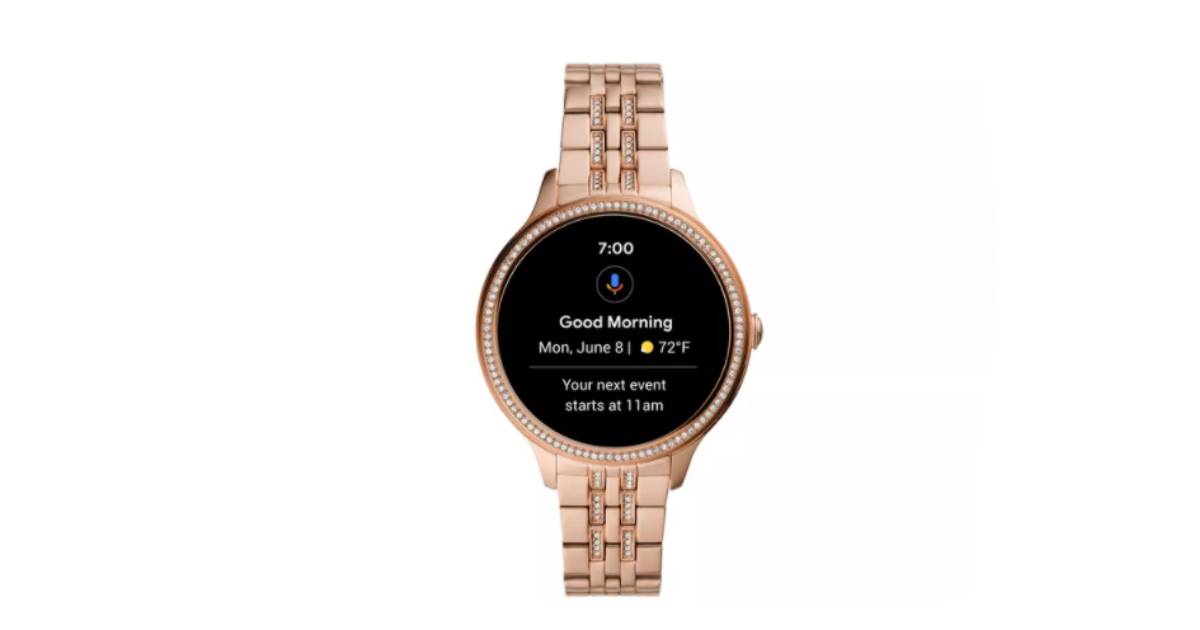Slowing to a crawl like a human not actually allowed
Tesla will switch off a feature in its Full Self-Driving software, present in more than 50,000 vehicles in the US, that allowed the cars and SUVs to roll past stop signs at junctions without coming to a halt.
According to recall documents on America’s National Highway Traffic Safety Administration’s website [PDF], Tesla has agreed to disable the feature via an over-the-air (OTA) software update. It is expected to begin deploying the update to affected vehicles in the next week or so.
It appears Tesla’s Full Self-Driving (Beta) software included a feature that emulates driver behavior found to be common in some places in the US, but which is also against the law in most if not all states.
This is the practice of slowing to a crawl at a junction, and not actually coming to a complete halt. Instead, the driver is able to pick up speed again if the way is clear.
However, the NHTSA has taken the view that failing to halt for a stop sign at junctions could increase the risk of a crash, and sought meetings with Tesla to get it to change this feature. According to the documents, this covers the 2016-2022 Model S and Model X, 2017-2022 Model 3, and 2020-2022 Model Y vehicles.
The Associated Press reports that Selected Tesla drivers are effectively being allowed to beta test the Full Self-Driving software on public roads, as long as the owner enables the function.
- SiC move: STMicroelectronics banks on bringing power electronics material in house as electric cars rev up
- Idea of downloading memories far-fetched say experts after Musk claim resurfaces in latest Neuralink development
- Tesla driver charged with vehicular manslaughter after deadly Autopilot crash
- Tesla Full Self-Driving videos prompt California’s DMV to rethink policy on accidents
Once enabled, the Tesla would be able to go through an all-way stop junction without coming to a complete halt. It would have to be traveling below 5.6 MPH (9 KPH) while approaching the junction, so long as no moving cars, pedestrians or bicyclists are detected nearby.
The incident is just the latest in the long-running saga of Tesla and its driver assistance software support. Last month, a Tesla driver was charged with vehicular manslaughter after a crash in Los Angeles in which the vehicle’s Autopilot mode was engaged.
Last year, five police officers filed a lawsuit against Tesla after a Model X ploughed into two parked police cars in Texas, and Tesla was forced to pull the Full Self-Driving software from vehicles that were testing it after a number of issues were found.
Tesla has previously insisted that its vehicles are not capable of fully autonomous driving: “The currently enabled Autopilot and Full Self-Driving features require active driver supervision and do not make the vehicle autonomous.” ®
Other stories you might like
-
Right to repair laws proposed in the US aim to make ownership great again
Bills seek to legalize digital lock breaking when mending stuff, ensure farmers can fix their machines
American farmers may soon be able to repair their agricultural equipment without paying the maker of their machinery for the privilege. And owners of other products may also see fewer repair barriers, depending upon how two new pieces of federal legislation are received.
The Agriculture Right to Repair Act [PDF], a US Senate bill introduced on Tuesday by Senator Jon Tester (D-MT), aims to force farm equipment makers to provide parts, documentation, software, and tools for repairs to third parties on reasonable terms.
The Freedom to Repair Act, introduced to the House of Representatives on Wednesday by US Representatives Mondaire Jones (D-NY) and Victoria Spartz (R-IN), promises to “legalize repairing what you own or taking it to the repair shop of your choice” by revising copyright law.
-
Prince of Packaging HP Inc snaps up zero-plastic bottle maker
Patented plastic-free tech from Choose Packaging
Paragon of packetry HP has acquired Choose Packaging, inventor of a zero-plastic paper bottle.
Choose’s patented tech can hold a variety of liquids and represents an alternative to plastic bottles. “There are more than 150 million tons of single-use plastics produced each year,” said the printer and laptop maker, “and HP intends to disrupt this market with fiber-based, 100 per cent plastic-free packaging.”
Financial terms of the deal were not disclosed, although a glimpse at the Edinburgh-based company’s website shows it considers its products both “biodegradable” and “sustainable.”
-
Another Massive Display as AMD hails ‘outstanding’ 2021, teases Genoa and Bergamo chips
Semiconductor giant sees growth across the board
AMD has hailed 2021 as an “outstanding” year with each of its business units growing significantly, thanks to strong sales of its Epyc server chips and data centre GPUs. The firm is hoping to continue this with its Genoa chips this year and Bergamo in 2023.
In a conference call to disclose AMD’s Q4 and year-end financial results, president and CEO Lisa Su said the firm had exceeded its growth goals and delivered a record year. In particular, she claimed that data centre revenue had more than doubled year-on-year.
In servers, Su said revenue had more than doubled year-over-year and increased by a double-digit percentage sequentially, driven by demand across both cloud and enterprise customers. She also picked out data centre graphics revenue as more than doubling year-on-year, driven by HPC wins for AMD’s latest Instinct MI200 accelerators, with platforms coming this quarter from Asus, Dell, HP, Lenovo, Supermicro, and others.
-
Remote code execution vulnerability in Samba due to macOS interop module
Patch now
An exploit in Samba 4 allowed remote code as root due to a bug in its support for Mac clients. It’s fixed in 4.13.17, 4.14.12 and 4.15.5, and in case you can’t update, there are patches.
The vuln is being tracked as CVE-2021-44142 and received a CVSS rating of 9.9.
Samba is a FOSS implementation of Microsoft’s Server Message Block (SMB) network protocol. SMB is how Windows (and DOS and OS/2) share drives. These days Microsoft likes to call it the “Common Internet File System” instead, or CIFS [PDF] for short, but the name exceeds the company’s ambition – in Unix land, SMB has never really displaced Sun’s Network File System (NFS).
-
Telecoms consulting outfit Sentaca disappears inside IBM’s Hybrid Cloud Services
Big Blue wants to ‘bring edge and 5G to life for enterprises’
IBM has acquired Sentaca, a telecoms consulting services and solutions provider, with the aim of boosting its own hybrid cloud consulting business in the communications service provider space.
According to IBM, Sentaca will join Big Blue’s Hybrid Cloud Services business to solve strategic and technology challenges for clients, as well as address opportunities including 5G, IoT, and streaming that can accelerate the creation and delivery of new services.
“Our goal is to help modern networks thrive in an open, hybrid cloud environment that will bring edge and 5G to life for enterprises and consumers,” IBM Consulting’s senior veep John Granger said in a statement.
-
UK think tank proposes Online Safety Bill reviewer to keep tabs on Ofcom decisions
Terror watchdog is a bad model to follow, though
Even think tanks with close links to the UK’s Conservative government are now criticising the Online Safety Bill, with the Institute of Economic Affairs (IEA) describing it today as “a significant threat to freedom of speech, privacy and innovation.”
The IEA, which tends to side with free-market conservatives, said today that the controversial legislation needs an independent reviewer to prevent it (ironically) causing harms to people using the internet in Britain.
Comparing it to the existing Government Reviewer of Terrorism Legislation post, the IEA argued in a report titled “In Harm’s Way” that an online harms reviewer could monitor Ofcom’s social media censorship orders as well as scrutinising new codes of conduct and statutory instruments before they are passed into law by Parliament.
-
European watchdog: All data collected about users via ad-consent popup system must be deleted
Decision to affect Google’s, Amazon’s and Microsoft’s online ads biz
All data collected through the Transparency & Consent Framework (TCF) must now be deleted by the 1,000+ firms that pay international digital marketing and advertising association IAB Europe to use it. This includes Google’s, Amazon’s and Microsoft’s online advertising businesses.
This is according to a decision handed down today by the Belgian data protection authority [PDF] finding that the “consent solution” fails to properly request consent, and relies on a lawful basis (legitimate interest) that is not permissible because of the severe risk posed by the online advertising tracking under Article 5(1)a, and Article 6 of the GDPR.
The DP watchdog also cited additional GDPR breaches, namely that: consent was not “properly requested”; there was not enough “transparency about what will happen to people’s data (articles 12, 13, and 14)”; there was a failure to “implement measures” to ensure data processing was compliant with the GDPR (article 24); and that IAB failed to respect the requirement for “data protection by design” (article 25).
-
50 lines of Bash to bring a Wordle fan out of their shell
Solved today’s in two? Now try and exit Vim
We are delighted to note that a version of the word game the New York Times bought for seven figures can now be played via a 50-line Bash script.
GitHub user “huytd” uploaded the code initially as “less than 50 lines of Bash”, although once others got stuck in the script size stood at the magic half century. By our reckoning, that works out at about $20,000 per line, assuming the seven-figure sum is in the region of $1m.
Of course, those 50 lines do not include all the gubbins required to render things on a browser nor the hooks to send a smug little post out to social media so your friends can see how clever you are. However, the requisite colours are present and correct, as is the frustration factor as the attempts mount up without success.
-
Court of Appeal ruling offers hope for UK umbrella firm workers chasing holiday pay
Plumber’s right did not lapse ‘but carried over and accumulated until termination of the contract’
A former worker for Pimlico Plumbers has won a case in the Court of Appeal over the right for backdated holiday pay in a case set to help employees of umbrella companies in all sectors, including information technology.
Gary Smith won the right to have paid holiday backdated following a ruling from the Civil Division of the Court of Appeal, which found that as an employee he had the right to paid leave and that right could be carried over.
Working for Pimlico Plumbers from August 2005 until May 2011, Smith had previously taken the company to court over his employment rights. An earlier ruling had concluded he was an employee and entitled to holiday pay.
-
UK to splash another £1.4bn on protecting non-existent ‘national interests in space’
But what of the domestic launchers?
Updated The UK government is to spend an extra £1.4bn on space defence on top of the £5bn allocated to upgrade the Skynet satellite communication system.
The Defence Space Strategy, intended to “bolster our national interests in space,” according to the UK’s Ministry of Defence, was accompanied by a speech from Chief of the Air Staff Sir Mike Wigston in which the usual bogeymen were trotted out.
“Russia and China have tested anti-satellite weapons creating debris fields that will linger for decades,” warned Wigston, adding: “Russian satellites continually make close approaches to other satellites, what we call rendezvous and proximity operations, possibly an indication of espionage activity, or possibly rehearsing something much more sinister.”
-
Brocade wrongly sacked award-winning salesman who depended on company insurance for cancer treatment
‘Global benefit’ chief: Broadcom buyout means pay your own way
Brocade sacked a former Sales Manager of the Year who was suffering from cancer when the company was bought by Broadcom – a decision that led to the man’s health insurance being cancelled.
The details emerged when former sales engineer Mr M Richards won his case for unfair dismissal against Brocade. Reading Employment Tribunal ruled last week that managers adopted a “meaningless” redundancy consultation process.
Despite Richards suffering a heart attack when he heard about the buyout, HR personnel not only selected the 13-year company veteran for redundancy but cancelled his health insurance – despite knowing he relied on it to treat his cancer.
Note: This article have been indexed to our site. We do not claim legitimacy, ownership or copyright of any of the content above. To see the article at original source Click Here














